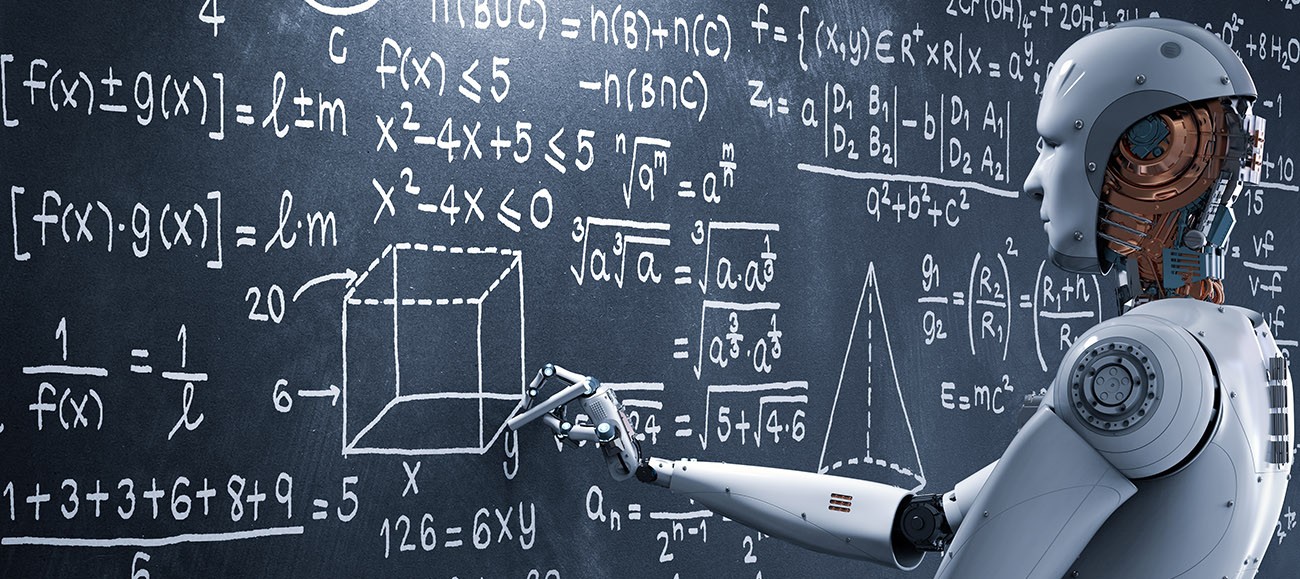What Can AI Do? 15 Common Uses in 2025 (Best Tips)
Jan 13, 2025
Read: AI for Beginners: A Simple Guide to Understanding Artificial Intelligence
Read: Must-Know AI and Programming Abbreviations for Kids and Teens in Tech
Read: Google AI vs OpenAI vs Meta AI vs Apple AI vs Samsung AI vs Microsoft AI vs Amazon AI: Who Will Lead the AI Race in 2025?
15 Common Uses of AI in 2025: How AI is Transforming Our Lives
Artificial Intelligence (AI) is no longer a futuristic concept. By 2025, AI technologies are revolutionizing how we live, work, and interact with the world. From AI in healthcare to AI-powered smart homes, AI’s influence is evident across industries. Whether you’re a beginner in AI or just curious about its applications, this guide covers 15 common uses of AI in 2025. Plus, we’ll share practical tips to help you leverage AI in your daily life.
1. AI Personal Assistants: Siri, Alexa, and Google Assistant
AI-powered personal assistants have come a long way. By 2025, these assistants have become far more intelligent and can handle complex tasks like scheduling meetings, providing health tips, or even managing your home. These tools use natural language processing (NLP) and machine learning (ML) to understand and act on your requests in real-time.
Tip: Maximize your smart assistant's potential by integrating it with smart home devices like lights and thermostats for a hands-free lifestyle. Learn more about how AI assistants work.
2. AI in Healthcare: Revolutionizing Medical Diagnosis
AI is transforming healthcare, particularly in diagnostics and predictive tools. By 2025, AI will diagnose diseases like cancer and diabetes with greater precision. These systems analyze medical images, patient data, and genetic information to suggest treatments faster than traditional methods.
Tip: Use AI-powered health apps to track your fitness, sleep, and mental well-being. Popular apps like Apple Health and MyFitnessPal are great tools for personal health monitoring.
3. Automated Customer Service with AI Chatbots
AI chatbots are becoming increasingly sophisticated. By 2025, these bots can handle more complex queries, thanks to advanced AI algorithms that simulate human conversation. Industries like banking, retail, and tech support are already utilizing AI chatbots to enhance customer interactions.
Tip: Leverage AI-powered chatbots for quick solutions to your customer service needs without waiting for a human representative.
4. Self-Driving Cars: The Future of Transportation
Self-driving cars, powered by AI, are expected to be more common by 2025. These vehicles use AI systems to interpret sensor data, make decisions, and navigate roads safely. Autonomous vehicles (AVs) will not only reshape transportation but also urban mobility.
Tip: If you're considering investing in self-driving technology, research available models and check your local laws regarding AVs.
5. AI in Education: Personalized Learning
AI is reshaping education by enabling personalized learning experiences. In 2025, AI-driven platforms will adapt lessons to suit individual learning styles and needs. Teachers will use AI to track student progress, recommend resources, and automate administrative tasks.
Tip: Take advantage of AI-powered platforms like Khan Academy or Duolingo for personalized study sessions.
6. AI for Content Creation: Writing, Design, and Music
AI tools are making content creation easier and more efficient. By 2025, AI-generated articles, videos, and music will become even more sophisticated. Writers, marketers, and designers are already using AI to enhance productivity, automate editing, and optimize workflows.
Tip: Use AI-powered content creation tools like Jasper AI or Canva for seamless writing and design.
7. AI in Finance: Investing and Personal Finance Management
AI is revolutionizing personal finance and banking. Robo-advisors are helping with investments, while AI-powered fraud detection systems are securing financial transactions. By 2025, AI will offer even smarter tools for managing your finances.
Tip: Use AI-powered financial apps like Mint or Wealthfront to track your spending, savings, and investments.
8. AI in E-commerce: Personalized Shopping Experience
AI is transforming e-commerce with personalized shopping experiences. By 2025, AI tools will track your browsing history, predict needs, and offer tailored recommendations. AI will also help optimize dynamic pricing for better deals.
Tip: Explore AI-driven shopping apps like Amazon or Shopify for personalized shopping experiences and deals.
9. Facial Recognition for Security and Convenience
Facial recognition technology, powered by AI algorithms, is enhancing device security and offering seamless authentication. By 2025, its use will be widespread, helping prevent fraud and improving convenience in various sectors.
Tip: Use facial recognition for device security and contactless payments for quicker and safer transactions.
10. Real-time Translation with AI
AI-powered translation tools have already bridged language gaps, and by 2025, these tools will be more accurate and real-time, enhancing cross-cultural communication globally.
Tip: Use apps like Google Translate or DeepL to break down language barriers, whether traveling or learning a new language.
11. AI in Manufacturing: Smart Factories
AI is optimizing manufacturing processes, automating production lines, and improving quality control. By 2025, smart factories powered by AI will minimize waste and improve operational efficiency.
Tip: If you’re in manufacturing, explore AI-driven tools like GE Digital's Predix to streamline operations.
12. AI for Environmental Sustainability
AI is a critical tool in the fight against climate change. By 2025, AI-powered systems will help monitor environmental changes, optimize energy use, and reduce waste. AI will also play a significant role in creating models for better decision-making in environmental policies.
Tip: Use AI-powered energy apps like Grid Edge to track and reduce your home’s carbon footprint.
13. AI for Mental Health: Support and Therapy
Mental health apps powered by AI are providing people with support for anxiety, stress, and depression. By 2025, AI-driven platforms will offer personalized coping strategies and real-time therapeutic advice.
Tip: Try AI-driven mental health apps like Woebot or Replika for emotional support and mood tracking.
14. AI in Art and Creativity
Artists are using AI tools to create innovative art, music, and literature. By 2025, AI will continue to push creative boundaries, offering new ways to express ideas through technology.
Tip: Experiment with AI-based creative tools like DALL·E 2 or RunwayML to enhance your artistic projects.
15. AI for Cybersecurity
As cyber threats increase, AI-powered cybersecurity tools are becoming indispensable. AI can analyze vast amounts of data to identify vulnerabilities and prevent malicious activities.
Tip: Use AI-based security solutions like Darktrace or CrowdStrike to protect your personal or business data.
Final Thoughts: How to Leverage AI in 2025
AI is changing everything, from healthcare and finance to creativity and security. By 2025, AI will offer even more opportunities for individuals and businesses. If you’re just getting started, experiment with some of the AI tools mentioned above and start integrating them into your daily life. The future is bright, and AI is here to help!
Have you used any AI tools recently? Share your experience in the comments below!
Read: Choosing After-School Programs That Best Fit Your Kids' and Teens' Future: A Parent's Guide to Matching Activities with Interests and Personality
Read: Why Every Teenager Should Learn Coding: Top Benefits for Teens and Parents
Read: What is the Most Popular After-School Activity?
Pinecone Coding Academy's Kids Coding Program
At Pinecone Coding Academy, we are passionate about making coding accessible and enjoyable for kids aged 8-17. Our program is designed to inspire and equip young learners with the skills they need to thrive in the digital world.
Click here to discover a coding class that matches your teen's or child's interests.
What We Offer:
Engaging Curriculum: Our courses introduce students to popular programming languages like Python, JavaScript, and HTML/CSS, laying a strong foundation for future learning.
Hands-On Projects: Students participate in project-based learning, creating real applications that they can showcase, from interactive games to personal websites.
Mentorship and Support: Our experienced instructors provide guidance, helping students navigate challenges and discover their coding potential.
Community Connection: By joining Pinecone, students become part of a vibrant community of peers, fostering collaboration and friendship as they learn.
Try a Free Session!
If your child is curious about coding, Pinecone Coding Academy offers a free introductory session for kids aged 8-17. This is a fantastic opportunity to explore programming in a fun and engaging way.
SEO Keywords: AI, Artificial Intelligence, AI in Healthcare, AI Personal Assistants, AI Chatbots, AI for Content Creation, AI in Finance, AI Translation, Self-Driving Cars, AI in Education, AI in E-commerce, AI Security, AI Technology
More blogs







